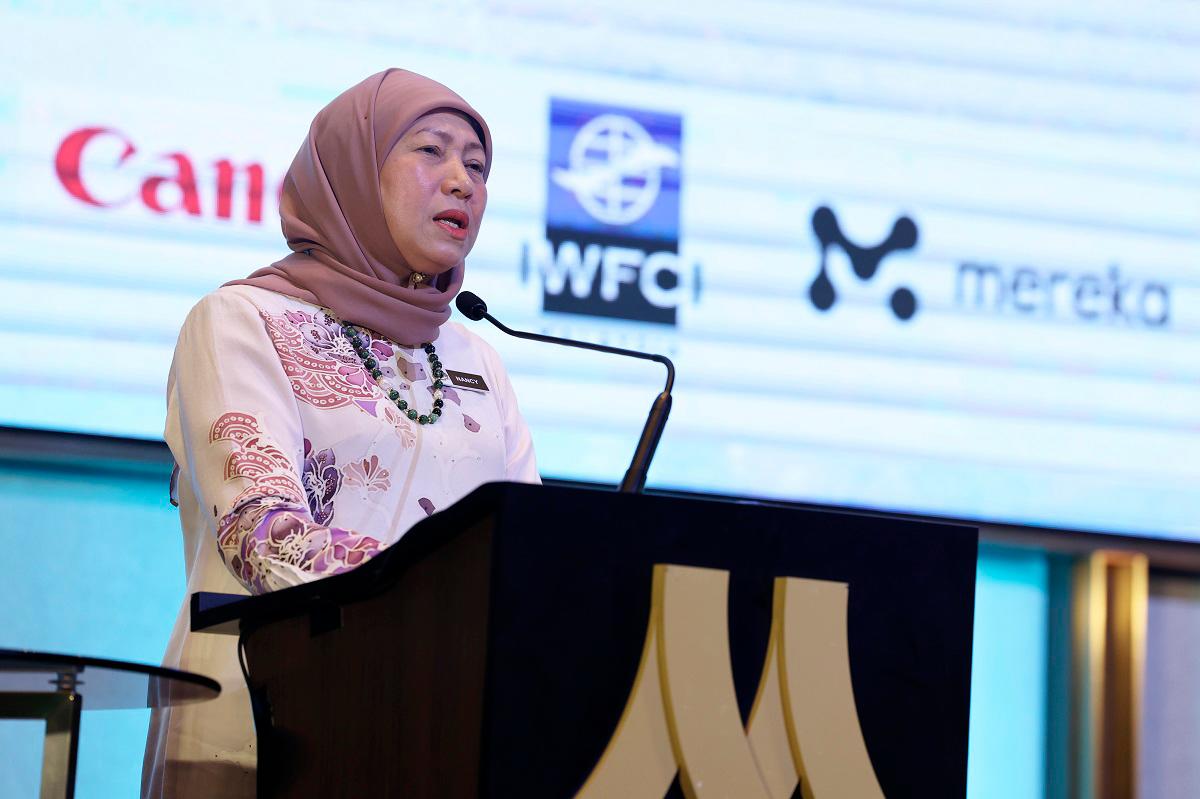KUALA LUMPUR: The Ministry of Women, Family and Community Development (KPWKM) continues its efforts to empower women in the digital economy through the Wanita Gig and Business In Technology (Gig@BIT) 2025 programme.
Its minister, Datuk Seri Nancy Shukri, said that 350 people participated in the second initiative of the Women’s Development Department (JPW), under the KPWKM, this year, which provides digital economic opportunities for women while building digital resilience to face the challenges of the modern world.
“This programme aims to provide greater access in sectors such as science, technology, engineering and mathematics (STEM), artificial intelligence (AI), green technology, and Technical and Vocational Education and Training (TVET), as well as to provide knowledge and awareness of cybersecurity,“ she said while officiating the Wanita Gig@BIT 2025 here today.
Also present were the KPWKM secretary-general Datuk Dr Maziah Che Yusoff and JPW director-general Hanani Sapit.
Nancy said programmes like Wanita Gig@BIT, the Income Generation Skills Programme (KIRANA), Iron Women, and Wanita Bangkit Bersasar focus on providing access to training and capacity building or ‘upskilling and reskilling’ for women to regain a strong foothold in the job market, particularly in the digital and entrepreneurship sectors.
She said it is also in line with the National Women’s Policy and the 2025-2030 Action Plan launched as a direction to empower women in terms of economy, leadership and social protection.
Also taking place at the event was the symbolic launch of Maxis eKelas Usahawan@JPW, which is the implementation of a supplementary programme with the ministry’s strategic partners.
At a press conference, Nancy said her ministry is still gathering feedback regarding the Senior Citizens Bill to protect the interests of that group before it is presented in Parliament.
“If everything is okay, we will present it to the cabinet, and then we will send it to the AG (Attorney General),“ she said, adding that the process needs to consider the latest developments regarding the elderly in the country and around the world to identify the types of development needed, especially in terms of infrastructure.









